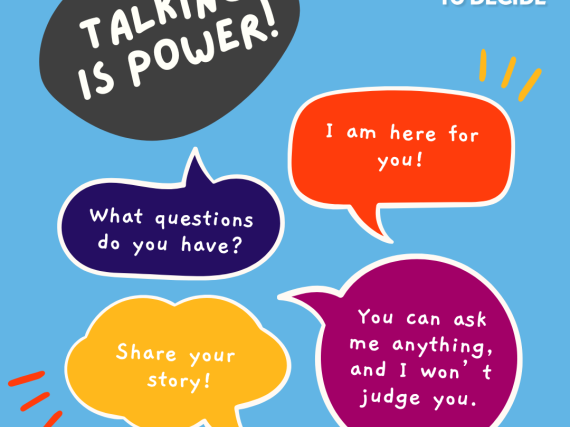Why Sex Ed Should Be Inclusive and Comprehensive
I’ve taught Human Sexuality for undergraduate students at The George Washington University Milken Institute School of Public Health for the past 10 years. As a sex educator, I’ve heard it all over the years. And the variety of questions my students have asked me reflects the variety of sex education available in this country.
Sex education that is truly comprehensive includes information about consent and healthy relationships, anatomy and physiology, adolescent sexual development, gender identity and expression, sexual orientation and identity, sexual and reproductive health—including the full range of birth control methods and pregnancy options—and so much more. All young people have a right to this kind of high-quality, evidence-based information and care to ensure their lifelong sexual and reproductive health.
In honor of #SexEdForAll Month here are seven questions students have consistently asked me over the years and my answers:
Which method of contraception is best?
The beauty of birth control is that there is no one-size-fits-all solution. The method of birth control that works best for people will vary. And a method that works at one point in a person’s life may not work later. On average, women in the United States use five different birth control methods throughout the course of their lives. Birth control, like many other aspects of life, is a journey. The best thing to do, no matter the method a person is thinking of, is to talk with a health care provider and see whether it’s the right option for them right now.
Can a person get pregnant if they have sex on their period?
The short answer is yes, any time semen is inside the vagina, pregnancy is possible. The longer answer is that if a person has regular menstrual cycles lasting about 28 days each, they are less likely to get pregnant while on their period than at other times in their cycle—but that doesn’t mean it’s impossible. It depends on some of the details, including when they ovulate (which means an egg is released from the ovary) and when the semen enter the vagina. That’s why it’s important for people having the kind of sex that can get them pregnant to use a method of birth control that fits best with their life in order to ensure that they only get pregnant when and if they want to.
Do you still have to go to the gynecologist if you've never been sexually active? If so, at what age is a good time to start?
It’s ideal to start visiting a gynecologist before a person starts having sex. Without any health problems to address, these visits are meant to build rapport and trust between a health care provider and patient and usually just involve talking about healthy behaviors and bodies. Regardless of sexual activity, all people with vaginas should start getting Pap smears and pelvic exams beginning at age 21. And remember, even if a person didn’t meet these ideal timelines, it’s never too late to schedule the first visit.
Am I the only one who is always paranoid about being pregnant even though I am on birth control and use condoms?
Nope! This is a pretty common fear. Plenty of people worry about pregnancy even when they’re using birth control. For some people, this may be a sign that it’s time to reevaluate the type of method being used for one that could provide more certainty. For others, it may be an anxiety that folks must work through on their own or with a health care provider. But you are definitely not alone.
Can you still get an STI if you’re using a condom?
Condoms prevent the majority of STIs transmitted through genital contact, such as chlamydia and gonorrhea. However, there are STIs, such as HPV and syphilis, that are frequently carried on the skin not covered by condoms. This means that they may be transmitted via skin-to-skin contact, even if a condom is worn. This is why it’s a good idea to get tested for STI’s every three to six months if you’re engaging in any sexual behavior with a partner or partners.
What is the best way to bring up and talk about "faking an orgasm" with your now long-term partner?
Communication is one of the most important aspects of any relationship; being able to have honest and open conversations with your partner, even when its uncomfortable or painful, is incredibly important. To start (and continue) a conversation on this potentially tricky topic requires a few things: self-awareness of the problem, understanding of your own emotions on the subject, and empathy to understand how what you say may affect your partner. Even if it’s difficult, being able to articulate what makes you feel good, both emotionally and sexually, can enhance communication with a partner and the quality of your relationship.
How many times can you take emergency contraception before it messes with your fertility?
There is no evidence that taking emergency contraception (EC) a certain number of times will reduce your chances of getting pregnant when you’re ready or will cause infertility. While it’s safe to take EC as many times as needed, it can also be expensive, so we recommend finding a birth control method that may be more cost effective or is covered by your insurance. Additionally, the American College of Obstetricians and Gynecologists recommends that emergency contraceptive pills not be used more than once during a single menstrual cycle.



